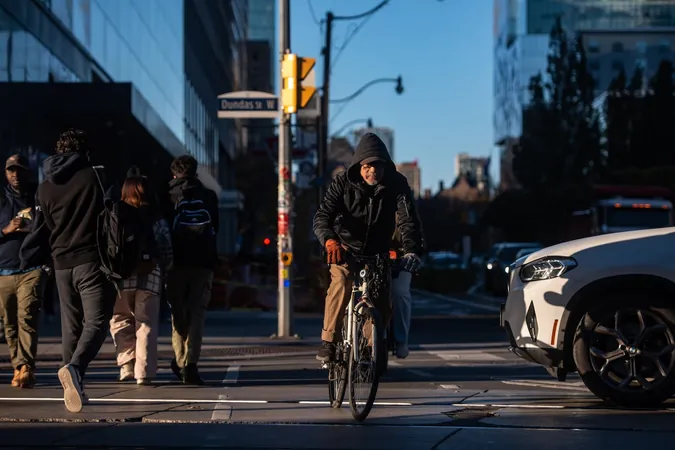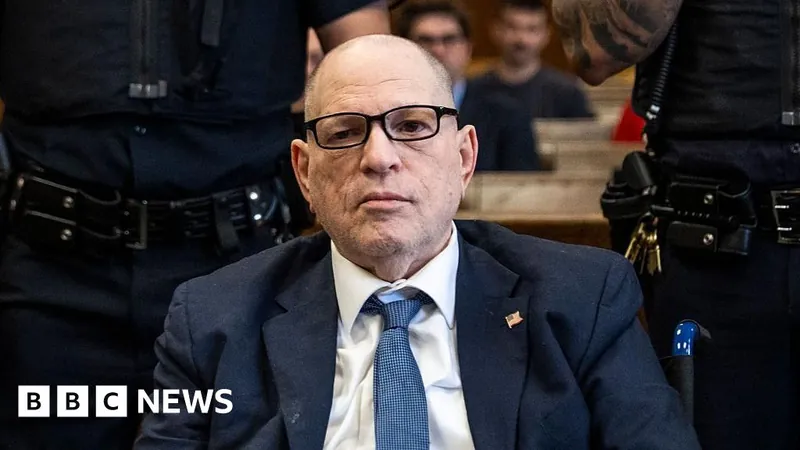
A Bold Protest: Over 70 Independent Candidates Challenge Pierre Poilievre in Elections
2025-04-08
Author: Olivia
In a striking move that could reshape the political landscape in Canada, Conservative Leader Pierre Poilievre is gearing up for re-election in his Ottawa-area riding of Carleton, where an unprecedented 74 independent candidates have mobilized to take a stand against the country’s electoral system.
Registered with Elections Canada as of Monday afternoon, these candidates are part of a coordinated protest spearheaded by the Longest Ballot Committee, a group dedicated to highlighting the inherent conflicts of interest present when politicians dictate election rules. The official agent for this cadre of candidates is Tomas Szuchewycz, who emphasizes that the committee's aim is to advocate for the establishment of a permanent, non-partisan body to manage electoral reforms.
Central to their protest is the controversial first-past-the-post electoral system, which allows candidates to win without securing a majority of the votes. Despite pledges from Prime Minister Justin Trudeau to pursue electoral reform, critics argue that little action has followed, prompting this grassroots uprising.
By opting to target Poilievre’s high-profile riding, the Longest Ballot Committee hopes to attract significant media coverage and public discourse. They also had intentions to extend their protest to Nepean, a riding where Liberal Leader Mark Carney is contesting, but logistical constraints hindered those plans.
Szuchewycz expressed his belief that the current electoral system fails to accurately represent voter sentiments, arguing that it is time for voters to have a real say in how elections are conducted. He also hopes that some independent candidates will gain a platform in local debates to further amplify their message.
While the Longest Ballot Committee is focused on Poilievre’s constituency, they acknowledge their limited resources, which is why prominent figures like NDP Leader Jagmeet Singh or Green Party Co-Leader Elizabeth May were not targeted.
Political experts are skeptical about the potency of the protest. Alex Marland, a professor at Acadia University and the Jarislowsky Chair in Trust and Political Leadership, suggests such protests seldom sway voting decisions at the polls. He theorizes that while protest candidates might siphon off votes from lesser-known parties, it is unlikely to alter the overall outcome of the election.
This movement is not an isolated incident. The Longest Ballot Committee previously made headlines during the June by-election for Toronto-St. Paul’s, featuring 84 candidates on a single ballot, resulting in an eight-hour counting process due to its unusual length. Similarly, the recent LaSalle-Émard-Verdun by-election had a staggering 91 candidates, showcasing the trend of protest politics in Canada.
In reaction to these developments, Chief Electoral Officer Stéphane Perrault has suggested penalizing those who submit excessively long and complex ballots as a form of protest. He has warned that prolonged ballots can confuse voters and complicate vote counting processes, noting that some candidates have secured support from voters who signed for multiple candidates.
However, Szuchewycz condemned these proposals as “ridiculous,” asserting that they won’t deter the efforts of the Longest Ballot Committee. Marland echoed the sentiment that while such protests spotlight critical electoral issues, serious reforms are still needed, including possibly requiring each candidate to have an individual official agent.
The Carleton riding remains a notable battleground, as Poilievre faces not only these independent challengers but also contenders from established parties, including Bruce Fanjoy for the Liberals, Beth Prokaska for the New Democrats, and Mark Watson for the Greens. As this unique election cycle unfolds, one question lingers: could this independent uprising signal a new wave of political change in Canada? Stay tuned!









 Brasil (PT)
Brasil (PT)
 Canada (EN)
Canada (EN)
 Chile (ES)
Chile (ES)
 Česko (CS)
Česko (CS)
 대한민국 (KO)
대한민국 (KO)
 España (ES)
España (ES)
 France (FR)
France (FR)
 Hong Kong (EN)
Hong Kong (EN)
 Italia (IT)
Italia (IT)
 日本 (JA)
日本 (JA)
 Magyarország (HU)
Magyarország (HU)
 Norge (NO)
Norge (NO)
 Polska (PL)
Polska (PL)
 Schweiz (DE)
Schweiz (DE)
 Singapore (EN)
Singapore (EN)
 Sverige (SV)
Sverige (SV)
 Suomi (FI)
Suomi (FI)
 Türkiye (TR)
Türkiye (TR)
 الإمارات العربية المتحدة (AR)
الإمارات العربية المتحدة (AR)